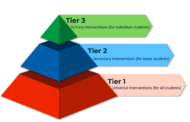By Halima Mohamud Sheikh Ahmed (SCHS)
People with disabilities often face unique challenges that affect their overall well-being, including nutrition and mental health. Poor dietary habits and food insecurity can exacerbate mental health conditions, while psychological distress can further limit access to proper nutrition. Understanding the relationship between nutrition and mental health is essential for improving quality of life and developing effective interventions.
The Role of Nutrition in Mental Health: –
1. Nutritional Deficiencies and Mental Health Risks: –
Research has shown that deficiencies in essential nutrients can contribute to mental health disorders. Key nutrients include:
Omega-3 fatty acids: Support brain function and reduce inflammation linked to depression and anxiety.
Vitamin B12 and Folate: Deficiencies can lead to cognitive decline and mood disorders.
Iron and Zinc: Low levels are associated with fatigue, poor concentration, and increased stress.
2. Gut-Brain Connection: –
The gut microbiome plays a crucial role in mental health. A diet rich in fiber, probiotics, and prebiotics supports gut bacteria, which in turn influences neurotransmitter production. Poor gut health has been linked to conditions like depression and anxiety.
3. Impact of Processed Foods: –
Highly processed foods, rich in sugar and unhealthy fats, can lead to inflammation and oxidative stress, negatively affecting brain function. Moreover, diets high in processed foods are correlated with higher rates of depression and mood disorders.
Dietary Strategies for Mental Well-being:-
Mediterranean Diet: Rich in fruits, vegetables, whole grains, and healthy fats like olive oil, this diet has been shown to improve mood and cognitive function.
Hydration: Dehydration can lead to fatigue and poor concentration, impacting mental health. On average, about 60% of your body weight is water. So, it probably isn’t surprising that there’s a link between hydration and mental health. When not drinking enough water, production of the stress hormone cortisol increases. In response, happiness hormone “serotonin” production declines. This hormonal imbalance can cause feelings of irritability, sadness, exhaustion and more.
Balanced Meals: Regular meals with adequate protein, healthy fats, and complex carbohydrates help stabilize blood sugar levels, reducing mood swings.
Mental Health Benefits of a Healthy Diet:-
For individuals with disabilities, a healthy diet can be transformative in managing both physical and mental health challenges. Disabilities often come with unique health concerns, such as altered metabolic rates, mobility limitations, or medication side effects, which can impact nutritional needs and mental well-being.
1-Mood Regulation:
* Foods rich in omega-3 fatty acids, such as fish, walnuts, and flaxseeds, have been shown to reduce symptoms of depression and anxiety.
* A Mediterranean-style diet, emphasizing fruits, vegetables, nuts, and legumes, is associated with better mental health outcomes.
2 Cognitive Enhancement:
* Nutrient-dense foods like whole grains and leafy greens improve brain function, memory, and concentration.
* Antioxidants found in berries and dark chocolate combat oxidative stress, which can impair cognitive abilities.
3 Stress Reduction:
* Magnesium-rich foods, such as nuts and seeds, help lower stress levels.
* Balanced meals stabilize blood sugar levels, preventing mood swings and irritability.
4 Improved Sleep Quality:
* Foods containing tryptophan, like turkey and eggs, promote serotonin production, aiding relaxation and sleep.
4 Neurochemical Balance:
* A healthy diet supports the production of neurotransmitters like serotonin and dopamine, crucial for emotional well-being.
Challenges and barriers that impact access to healthy nutrition for people with disability: –
Ensuring proper nutrition and mental well-being is crucial for everyone, but individuals with disabilities often face unique challenges that require tailored solutions. Here are some key barriers to addressing the impact of nutrition on mental health for people with disabilities:
1- Food Insecurity: People with disabilities are at a higher risk of food insecurity due to socioeconomic challenges, limited access to resources, and physical barriers.
2- Social Exclusion: Broader societal exclusions, such as limited access to education, employment, and healthcare, contribute to food insecurity and poor nutrition among individuals with disabilities.
3- Physical and Environmental Barriers: Challenges like inaccessible transportation, lack of adaptive kitchen tools, and difficulty in physically accessing grocery stores or food assistance programs can hinder proper nutrition.
4- Lack of Awareness and Support: Caregivers, family members, and healthcare providers may lack awareness of the specific nutritional needs of people with disabilities, leading to inadequate support.
5- Policy Gaps: Insufficient policies and programs to address the unique needs of people with disabilities in food security and mental health interventions may exacerbate the problem.
Strategies and solutions to overcome barriers:-
1. Personalized Nutrition Plans:-
Tailored diets can address specific needs, such as texture-modified diets for swallowing difficulties or anti-inflammatory foods for mood stabilization. Research highlights the importance of personalized approaches to meet unique nutritional requirements.
2. Assistive Technologies:-
Innovative tools like adaptive utensils and voice-guided cooking devices empower individuals to prepare meals independently. Studies emphasize the role of assistive technologies in enhancing autonomy and nutritional outcomes.
3. Community Support Programs:-
Programs like food delivery services and food banks provide essential support for individuals facing mobility or financial challenges. Community initiatives have been shown to alleviate food insecurity and improve access to nutritious foods.
4. Education and Awareness: –
Nutrition education for people with disabilities and their families and cooking classes can build confidence and encourage healthier choices. Training individuals to read food labels and understand nutritional information is crucial for informed decision-making.
5. Policy Advocacy:-
Advocating subsidies on healthy foods and improved accessibility in grocery stores can make healthy nutrition options more attainable. Also, integrating nutrition in healthcare as part of the therapy by encouraging healthcare providers to include nutrition counseling as part of disability management.
Conclusion:-
Nutrition and mental health are deeply interconnected, particularly for individuals with disabilities. Addressing food insecurity, promoting balanced diets, and implementing dietary interventions can significantly improve mental health outcomes. Future research should continue exploring personalized nutrition strategies to support mental well-being in this population. And more studies are needed to explore the effects of dietary patterns, such as the Mediterranean diet, on mental health and disability management.
References:-
- Merlo, G., Bachtel, G., & Sugden, S. G. (2024). Gut microbiota, nutrition, and mental health. Frontiers in Nutrition, 11. https://doi.org/10.3389/fnut.2024.1337889
- Dal, N., & Saniye Bilici. (2024). An Overview of the Potential Role of Nutrition in Mental Disorders in the Light of Advances in Nutripsychiatry. Current Nutrition Reports. https://doi.org/10.1007/s13668-024-00520-4
- Grajek, M., Krupa-Kotara, K., Białek-Dratwa, A., Sobczyk, K., Grot, M., Kowalski, O., & Staśkiewicz, W. (2022). Nutrition and mental health: A review of current knowledge about the impact of diet on mental health. Frontiers in Nutrition, 9(943998). https://doi.org/10.3389/fnut.2022.943998
- Clinic, C. (2025, March 28). Dehydration and Mental Health: What’s the Connection? Cleveland Clinic. https://health.clevelandclinic.org/dehydration-and-affect-on-mental-health
- Singh, V., Bansal, A., Dwivedi, S. (2024). Exploring the Link Between Nutrition and Disability: Current Evidence and Future Directions. In: Bennett, G., Goodall, E. (eds) The Palgrave Encyclopedia of Disability. Palgrave Macmillan, Cham. https://doi.org/10.1007/978-3-031-40858-8_331-1
- Nutrition for Individuals with Intellectual or Developmental Disabilities «Montana Disability and Health Program. (n.d.). Mtdh.ruralinstitute.umt.edu. https://mtdh.ruralinstitute.umt.edu/?page_id=813






















